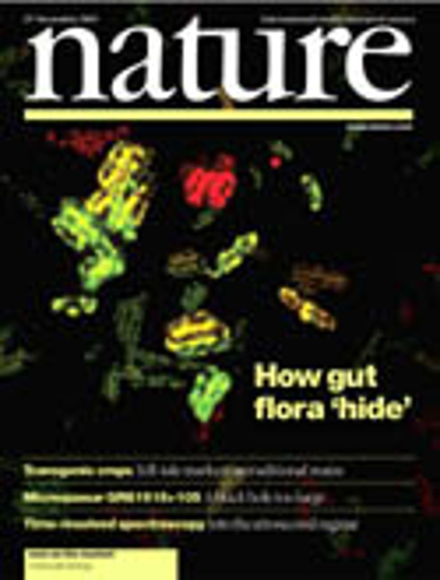Volume 414 Issue 6863, 29 November 2001
Prospects
Movers
Opinion
News
News in Brief
News Feature
Correspondence
Book Review
Concepts
News & Views
Brief Communication
Retraction
Article
-
Attosecond metrology
Collection:

